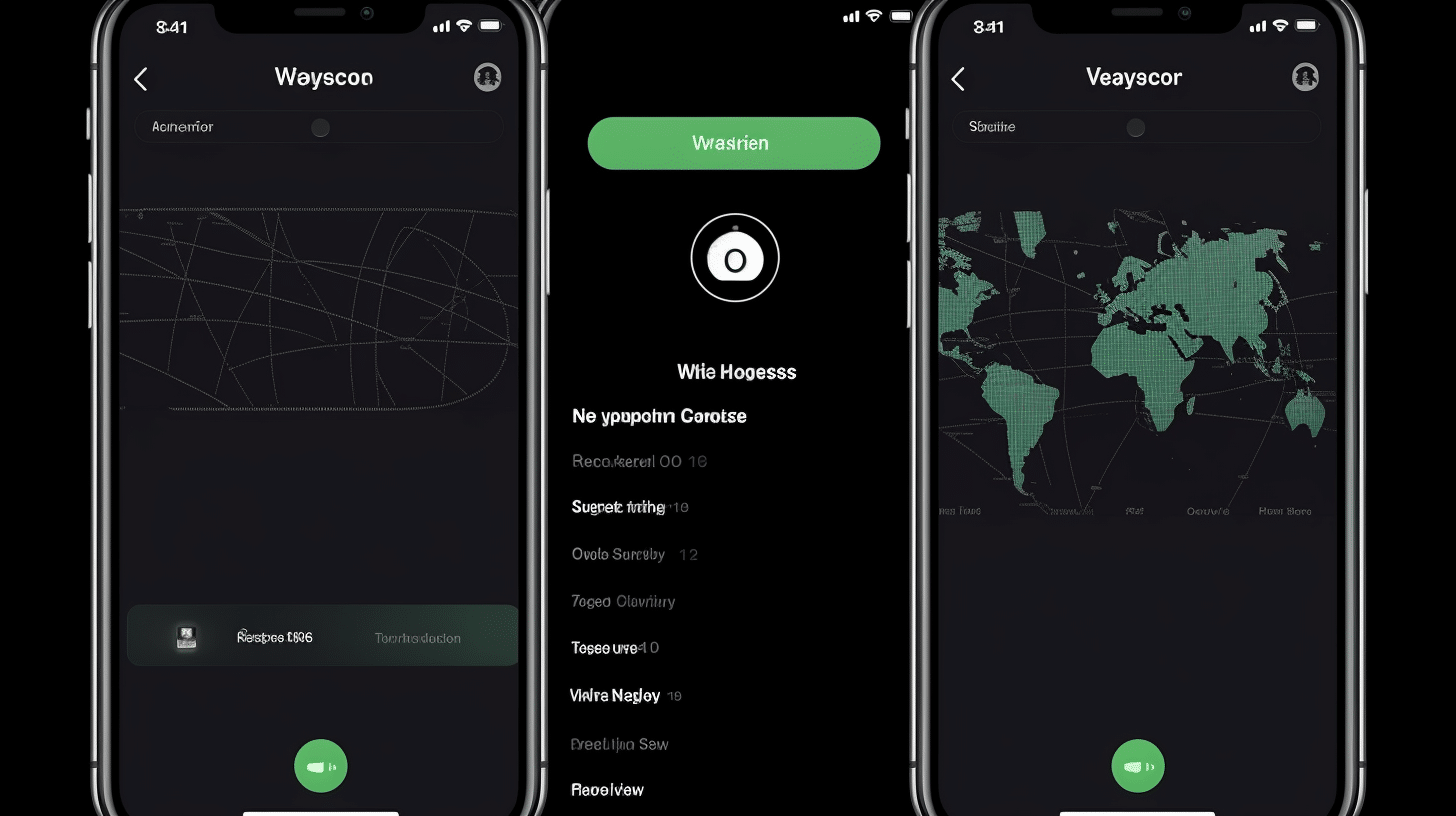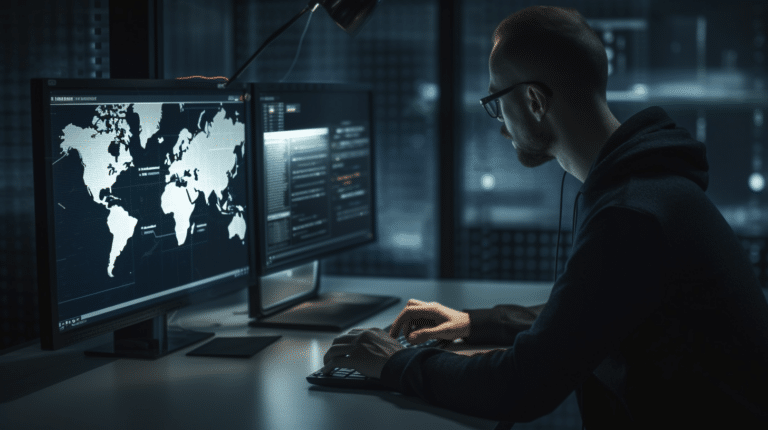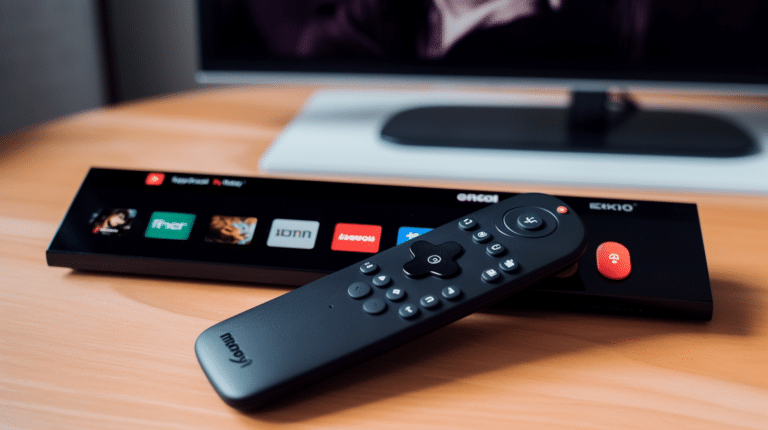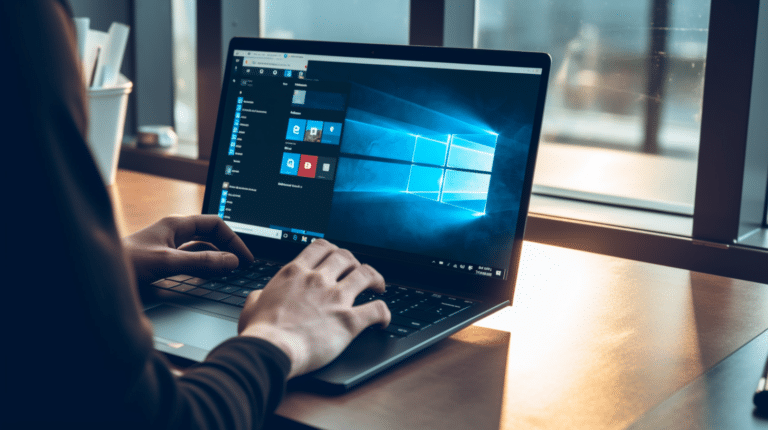Virtual Private Networks, or VPNs, have become increasingly popular among iPhone users looking to enhance their online privacy and security. VPNs create a secure and encrypted connection between a user’s device and the internet, which helps protect their data from potential eavesdropping or unauthorized access by hackers, governments, or Internet Service Providers (ISPs). With the rising number of cybersecurity threats and public Wi-Fi vulnerabilities, iPhones have become a prime target for attackers, making VPN use on these devices essential for privacy-conscious individuals.
Additionally, VPNs can provide other benefits like bypassing geographical restrictions on content, allowing users to access region-specific websites and streaming services. This can be particularly helpful for travelers who want to keep up with their favorite shows or access overseas content. Setting up a VPN on an iPhone is relatively simple and often involves downloading a dedicated app from the App Store. However, it’s crucial to choose a reputable VPN service that provides strong encryption and keeps minimal or no logs to ensure optimal privacy and security.
Key Takeaways
- VPNs enhance online privacy and security on iPhones by creating a secure and encrypted connection to the internet.
- Besides protection, VPNs help bypass geographical restrictions on content and maintain access to region-specific websites.
- It’s important to choose a reputable VPN service for iPhone that provides strong encryption and minimal or no logs.
Understanding VPN on iPhone
A Virtual Private Network (VPN) is a technology that allows users to create a secure and encrypted connection to a private network over the internet. On an iPhone, VPNs provide an added layer of security and privacy when connected to public Wi-Fi or other untrusted networks. This ensures that your personal data and browsing activities stay private from hackers, government surveillance, and other potential threats.
Apple’s iOS devices, including the iPhone, come with built-in VPN support. This allows users to easily set up and configure various VPN protocols, such as L2TP, PPTP, and IPsec. To set up a VPN on your iPhone, you can either use a third-party VPN app available on the App Store or manually configure it in the Settings app.
When using a VPN on your iPhone, the data you send and receive travels through an encrypted tunnel between your device and the VPN server. This conceals your real IP address and replaces it with the VPN server’s IP address, making it appear as if you’re browsing from a different location. This can be helpful for accessing geo-restricted content or maintaining privacy when using public networks.
It is important to choose a trustworthy VPN service for your iPhone, as not all VPNs are equally secure and reliable. Look for features such as strong encryption standards, a no-logs policy, and fast connection speeds. Additionally, some VPN services offer dedicated iOS apps, which can make using a VPN on your iPhone more user-friendly and seamless.
In conclusion, a VPN is an essential tool for any iPhone user concerned about their privacy and security when browsing online. By understanding how VPNs work and selecting a reliable service, you can protect your data from potential threats and enjoy a more secure and private internet experience on your iOS device.
Key Benefits of a VPN
Enhanced Privacy and Security
A VPN (Virtual Private Network) is a service that helps users maintain their privacy and security while using the internet. It does this by encrypting your internet traffic and hiding your IP address, making it more difficult for third parties, such as hackers and government agencies, to monitor your online activities. A VPN service achieves this by routing your internet connection through their secure servers, which can be located anywhere around the globe. This not only enhances privacy but also helps protect your data from potential cyber threats.
Online Access and Bypassing Censorship
Another key benefit of using a VPN is its ability to provide unrestricted access to online content, regardless of geographical location. By connecting to a VPN server in a different country, you can effectively bypass local censorship and gain access to websites and services that might have been blocked in your region. This is particularly useful for users living in countries where internet access is restricted or censored. A VPN service can also be beneficial for travelers who wish to access their favorite streaming services while abroad, without being limited by the content available in their current location.
Improved Speed and Quality
By connecting to a VPN server that is close to your desired destination, it is possible to improve the speed and quality of your internet connection. This can be particularly helpful for users who rely on high-speed connections for activities such as online gaming or video streaming. Additionally, many VPN services offer advanced features, such as split-tunneling and optimized servers, that can further enhance the speed and performance of your connection.
In summary, a VPN service on an iPhone provides key benefits such as enhanced privacy and security, unrestricted online access, and improved connection speed and quality. By utilizing a VPN, users can safeguard their data, bypass censorship, and enjoy a more seamless internet experience.
Setting Up a VPN on iPhone
Setting up a VPN on an iPhone involves either configuring the built-in settings or using a VPN app available in the App Store. Either method provides extra security and privacy, allowing users to safeguard their data while browsing or accessing restricted content.
Built-In VPN Configuration
To set up a VPN using the built-in iPhone settings, follow these steps:
- Open the Settings app on your iPhone or iPad
- Scroll down and tap on General
- Tap on VPN
- Choose Add VPN Configuration…
- Input the VPN details (you’ll need information from your VPN provider)
- Tap Done to save the configuration
Once the configuration is saved, you can enable or disable the VPN connection by going back to the VPN settings.
Using VPN Apps
For a more user-friendly experience, you can use a VPN app available on the App Store. There are numerous VPN apps that cater to various requirements, such as free or paid, level of security, and server locations. To get started, follow these steps:
- Open the App Store on your iPhone or iPad
- Search for a VPN app that suits your needs (e.g., NordVPN, ExpressVPN, TunnelBear)
- Download and install the VPN app
- Launch the VPN app and sign in or create an account (if required)
- Follow the app’s instructions to connect to a VPN server
By using a VPN app, you’ll likely have access to additional features such as choosing server locations or having a built-in VPN client. Always ensure you choose a reputable VPN app to guarantee the security and privacy of your data while using your iPhone.
Remember, using a VPN on your iPhone can help protect your data and improve your online experience. Choose the method that best suits your needs, whether it’s the built-in configuration or a versatile VPN app.
Choosing the Right VPN Service
When it comes to using a VPN on your iPhone, making the right choice involves considering several factors. This section will guide you through Comparing Subscription Plans and Features and Evaluating Security and Privacy Protocols to help you make an informed decision.
Comparing Subscription Plans and Features
When selecting a VPN service, it’s crucial to compare subscription plans among various providers. Factors to consider include:
- Pricing: VPN providers offer different pricing plans, often with discounts for longer commitments. Ensure the plan fits within your budget and offers a good value for the service provided.
- Number of servers: A higher number of servers, especially in different geographical locations, can provide better connection speeds and access to geo-restricted content.
- Supported devices: The VPN service should support your iPhone and any other devices you plan to use, such as tablets or laptops.
- Bandwidth and speed: Some VPNs may limit bandwidth or reduce connection speeds, so look for providers that offer unlimited bandwidth and fast connections.
Evaluating Security and Privacy Protocols
Ensuring security and privacy is essential when choosing a VPN provider. Keep the following factors in mind:
- Encryption: The VPN service should utilize strong encryption protocols to keep your data safe from hackers and your Internet Service Provider (ISP). Look for providers that offer AES 256-bit encryption, which is considered secure and reliable.
- Protocols: VPN providers use various protocols, such as OpenVPN, IKEv2, and L2TP/IPsec, each with different strengths and weaknesses. Consider choosing a provider that offers multiple protocols so you can select the best option for your requirements.
- Logging policy: Some VPN providers keep logs of user activity, while others have a strict no-logs policy. For privacy-conscious users, a no-logs policy is generally recommended.
- Online privacy: A good VPN service should protect your online privacy by hiding your IP address, preventing DNS leaks, and offering additional features such as a kill switch, which disconnects you from the internet if the VPN connection drops.
When choosing a VPN service for your iPhone, it’s important to strike a balance between features, pricing, and security. Carefully evaluating subscription plans and security protocols will help you make the right decision to protect your online privacy and enjoy a seamless internet experience.
Potential Risks and Warning Signs
Avoiding Free VPNs with Hidden Dangers
While using a VPN on your iPhone can enhance privacy and security, it’s essential to be cautious about the service provider you choose. Many free VPN services pose hidden risks as they might sell your data to third parties or expose your connection to dangerous networks. Moreover, some free VPNs might have weak encryption protocols, increasing the chances of data breaches on public Wi-Fi networks.
To avoid these risks, consider opting for a paid VPN service with a good reputation in the market. These providers typically invest more in securing their networks and safeguarding user data. In addition, using Touch ID or other biometric authentication methods can enhance your iPhone’s overall security when accessing VPNs.
Tracking VPN Providers’ Logging Policies
Another potential risk when using a VPN on your iPhone is the provider’s logging policy. Some VPNs might track and store your online activities and either use this data for their purposes or even share it with third parties. This is why it’s crucial to review and understand a VPN provider’s logging policy before using their service. A reliable VPN should have a strict no-logs policy in place, ensuring that your activities remain private and secure.
As an iPhone user, it is crucial to be aware of the potential security risks associated with VPN services. Remember to choose a reputable VPN provider, pay attention to their logging policy, and enhance your device’s security features.
In summary, using a VPN on your iPhone can offer numerous benefits in terms of privacy and security. However, bear in mind the potential risks and warning signs by carefully selecting the right VPN service and following best practices to ensure safe and reliable Internet browsing.
Popular VPN Options for iPhone
ExpressVPN
ExpressVPN is a popular choice for iPhone users due to its user-friendly iOS app, high-speed servers, and strong security features. The app is easy to set up, offers a simple interface, and includes a one-click connection feature. ExpressVPN has over 3,000 servers in 94 countries, providing a wide selection of locations to choose from. It utilizes strong encryption protocols like OpenVPN and IKEv2, ensuring your data remains secure while connected to a VPN server.
NordVPN
NordVPN is a well-known VPN service with a comprehensive iOS app that delivers a reliable experience to iPhone users. It offers more than 5,000 servers in 59 countries and utilizes advanced security features like Double VPN and CyberSec to keep your online traffic protected. The NordVPN app is easy to navigate and offers detailed server selection, enabling users to have better control over their VPN connection. Additionally, NordVPN is known for its strict no-logs policy, which ensures your online activity remains private.
Surfshark
Surfshark is another popular option for iPhone users, focused on delivering a balance of affordability, speed, and security. The Surfshark iOS app features a clean interface with easy server selection and a quick connect option. Surfshark’s network consists of over 3,200 servers in 65 countries, providing ample location options. One of the key benefits of Surfshark is its unlimited simultaneous connections, allowing you to protect multiple devices using a single subscription. Moreover, it employs strong encryption and offers advanced security features like CleanWeb, which helps block ads and malicious content.
Frequently Asked Questions
Should I activate VPN on my iPhone?
Using a VPN on your iPhone can provide additional security and privacy. It is especially useful when connecting to public Wi-Fi networks, as it encrypts your data and masks your IP address. If you’re concerned about your online privacy, activating a VPN is a good idea. However, keep in mind that using a VPN may slightly decrease your internet speed and may not be necessary for all users.
How to disable VPN on my iPhone?
To disable VPN on your iPhone, go to Settings > VPN. Toggle the switch off to disable the VPN connection. If you’re using a third-party VPN app, you may need to open the app and disconnect the VPN from within the app itself.
Does iPhone have a built-in VPN?
iPhones do not have a built-in VPN, but they support VPN functionality. To use a VPN on your iPhone, you can set up a VPN manually or download a third-party VPN app from the App Store.
What is the best VPN for iPhone?
There are several VPN services available for iPhone users. The best VPN for you depends on your preferences and needs. Some popular and reliable VPNs for iPhone include ExpressVPN, NordVPN, and Surfshark. It’s important to research and compare different VPN services before selecting one to ensure that it meets your requirements for security, privacy, and performance.
How to set up VPN on iPhone at no cost?
While there are free VPN services available, they often come with limitations and may not be as secure or reliable as their paid counterparts. To set up a free VPN on your iPhone, you can download a free VPN app from the App Store or manually configure a VPN using the details provided by a free VPN service. Keep in mind that using a free VPN may have drawbacks, such as limited server locations, slower connection speeds, and a lack of advanced features.
Do iPhones come with pre-installed VPNs?
iPhones do not come with pre-installed VPNs. To use a VPN on your iPhone, you will need to download a VPN app from the App Store or manually configure a VPN connection in your iPhone settings. Remember that it is important to research and compare different VPN services before choosing one to ensure that it meets your needs for security, privacy, and performance.






